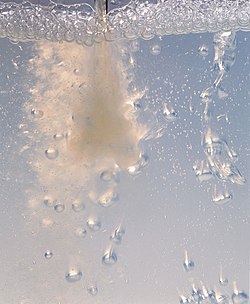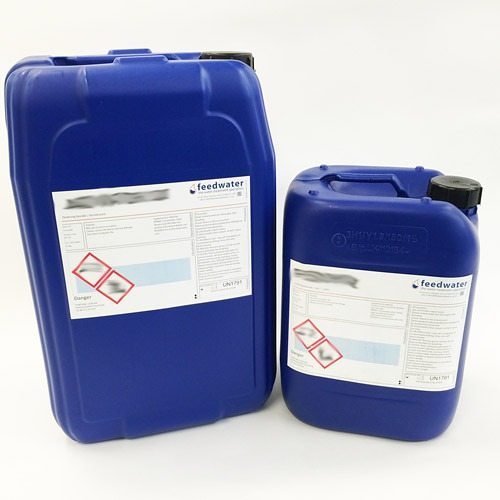Why Choosing a Well-Formulated Chemical Defoamer Is Important for Your Industry
Why Choosing a Well-Formulated Chemical Defoamer Is Important for Your Industry
Blog Article
Discovering the Perks of a Chemical Defoamer in Manufacturing and Manufacturing
The integration of chemical defoamers in production and manufacturing procedures offers a critical advantage by resolving one of the relentless challenges in commercial operations: foam control. Chemical Defoamer. Comprehending the subtleties of various sorts of defoamers and their specific applications can expose their considerable impact on functional performance and product top quality. As makers aim to optimize processes and boost consumer complete satisfaction, the duty of chemical defoamers becomes progressively essential. Yet, the question stays: just how do these compounds basically alter the landscape of production effectiveness and cost-effectiveness?
Relevance of Foam Control
While the existence of foam in making procedures can occasionally seem safe, reliable foam control is crucial for enhancing operational efficiency and product quality. Foam can hinder various stages of production, resulting in ineffectiveness that may extend and boost expenses processing times. In markets such as food and drink, drugs, and chemicals, uncontrolled foam can block equipment, disrupt automated systems, and eventually lead to product variances.

Executing effective foam control approaches not only improves performance however also sustains regulative compliance in sectors where foam can bring about environmental worries. By using chemical defoamers, manufacturers can alleviate these obstacles, making sure smoother procedures and higher-quality end items. Eventually, focusing on foam control is a crucial facet of manufacturing that can produce substantial benefits in regards to effectiveness, safety and security, and product dependability.
Sorts Of Chemical Defoamers
What sorts of chemical defoamers are available for producing procedures, and how do they vary in application? Chemical defoamers can be categorized into three primary kinds: silicone-based, organic, and not natural defoamers. - Chemical Defoamer

Organic defoamers, normally acquired from fatty acids or all-natural oils, work in an array of applications, including food and beverage manufacturing. They are often liked for their reduced poisoning and ecological effect, guaranteeing compliance with sector regulations.

Each type of defoamer serves distinctive functions based on the chemical make-up and the details demands of the manufacturing process, permitting producers to choose one of the most suitable alternative for their specific demands.

Benefits in Production Effectiveness
Chemical defoamers play a crucial function in enhancing producing efficiency by successfully controlling foam generation throughout numerous processes. Foam can prevent production prices, interfere with devices procedure, and lead to expensive downtime. By including chemical defoamers, producers can minimize these issues, making sure smoother operations and enhanced total productivity.
Making use of chemical defoamers aids optimize the operational efficiency of tools such as reactors, pumps, and mixers. With lowered foam, these machines can operate at their meant capacity, lessening the threat of overflow and making it possible for consistent processing. This leads to much better resource usage and greater throughput.
In addition, chemical defoamers facilitate faster processing times by decreasing the time required for foam elimination. This acceleration can significantly impact production schedules, allowing producers to satisfy consumer need extra effectively. Additionally, the use of defoamers contributes to reduce power usage, as equipment operates much more efficiently with reduced foam interference.
Effect On Product Quality
Foam control is not only vital for preserving effectiveness in producing processes but also plays a significant role in guaranteeing item high quality. Extreme foam can introduce air into solutions, leading to inconsistencies in the article end product. This can materialize as flaws such as gaps, unequal structures, or below average surfaces, which weaken the designated quality and performance of the item.
In addition, foam can impede the homogeneity of blends, resulting in uneven circulation of energetic ingredients. In industries such as coatings, cosmetics, and food manufacturing, this can cause variations in color, preference, and general efficiency. By utilizing a chemical defoamer, manufacturers can minimize these dangers, making sure that products meet rigorous high quality specifications.
In addition, regulating foam can improve the security of suspensions and solutions, which is vital for ensuring shelf-life and customer fulfillment. With improved item Continue consistency and reduced flaws, producers can attain higher criteria of high quality guarantee, eventually leading to raised consumer trust fund and brand name loyalty.
Cost-Effectiveness and ROI
Effective foam control not just improves product high quality but additionally contributes substantially to the overall cost-effectiveness of producing procedures. Making use of chemical defoamers decreases foam-related problems, which can or else lead to production delays, tools malfunctions, and boosted power consumption. By decreasing foam, makers can optimize their processes, causing greater throughput and efficiency.
Buying chemical defoamers can produce a substantial roi (ROI) The initial costs related to these additives are typically balanced out by the cost savings realized from lowered downtime and boosted product return. Improved product high quality can minimize waste and revamp prices, additionally bolstering financial efficiency.
Furthermore, reliable foam control can result in lowered water and energy use, adding to reduced operational expenses. This is particularly important in markets where source efficiency is extremely important. By integrating chemical defoamers right into their processes, manufacturers can accomplish long-term financial savings while maintaining competitive prices in the market.
Verdict
To conclude, the assimilation of chemical defoamers in manufacturing and manufacturing procedures is important for maximizing operational performance and boosting product top quality. Efficient foam control contributes to better tools performance, minimized processing times, and lessened downtime, inevitably resulting in substantial cost financial savings. Additionally, consistent item solutions foster customer contentment and brand name commitment. The advantages provided by chemical defoamers not only support regulatory conformity yet additionally give an one-upmanship in the production landscape.
The integration of chemical defoamers in production and production procedures offers a critical advantage by resolving my latest blog post one of the consistent obstacles in industrial procedures: foam control.While the existence of foam in manufacturing processes can in some cases appear safe, efficient foam control is essential for optimizing operational effectiveness and product high quality.Chemical defoamers play a crucial duty in improving making performance by effectively managing foam generation throughout various processes.Additionally, chemical defoamers facilitate faster processing times by lowering the time required for foam elimination. Additionally, the use of defoamers contributes to lower energy usage, as machinery operates a lot more effectively with decreased foam interference.
Report this page